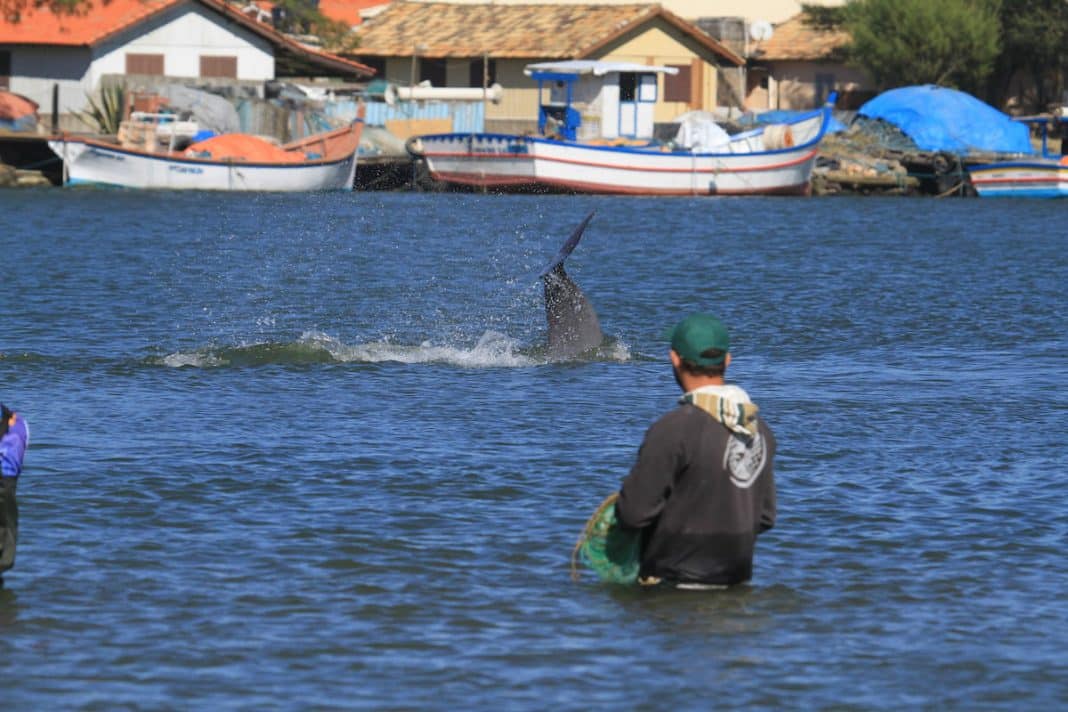Dolphins and net-casting fishers in Brazil catch more fish by working together, a new study by an international team of researchers has shown.
According to the authors, it’s a rare example of an interaction by two top predators that is beneficial to both parties.
The study was led by Assistant Professor Mauricio Cantor from Oregon State University. The research team also included Associate Professor Damien Farine from The Australian National University (ANU) and University of Zurich, and Dr Fabio Daura-Jorge from the Federal University of Santa Catarina in Brazil.
“We knew the fishers were observing the dolphins’ behaviour to determine when to cast their nets, but we didn’t know if the dolphins were actively coordinating their behaviour with the fishers,” Assistant Professor Cantor said.
“Using state-of-the-art techniques, combining drones and underwater imaging, we could observe the behaviours of fishers and dolphins with unprecedented detail and found that they catch more fish by working together.”
This cooperation between the Lahille’s bottlenose dolphins and traditional net-casting fishers, which is considered a cultural tradition, can be observed in the city of Laguna on Brazil’s southern coast. It has been passed down through generations of fishers and dolphins for more than 140 years. But it could be at risk if populations of mullet – the type of fish both parties are seeking – continue to decline, or if future generations of fishers lose interest in learning the art.
“The practice is unlikely to continue if either the dolphins or the fishers no longer benefit from it, or something major occurs to disrupt it,” Associate Professor Farine said.
“We’ve seen similar interactions disappear in other parts of the world – there’s even evidence that Indigenous communities here in Australia cooperated with bottlenose dolphins to catch mullet until the 19th century.”
The study found teamwork not only substantially increases the probability of catching fish and number of fish caught, but that cooperation triggers a 13 per cent increase in dolphins’ survival rates, and better socioeconomic wellbeing for the fishers.
“What makes this interaction so unusual is the fact it is mutually beneficial rather than competitive,” Associate Professor Farine said.
“This makes it of substantial scientific interest as it can help us to understand under what conditions cooperation can evolve and – of growing importance in our rapidly changing world – under what conditions it might go extinct, like the historic cases from Australia and elsewhere.”
The findings have been published in the Proceedings of the National Academy of Sciences.



